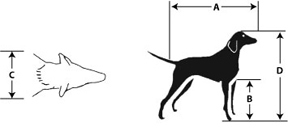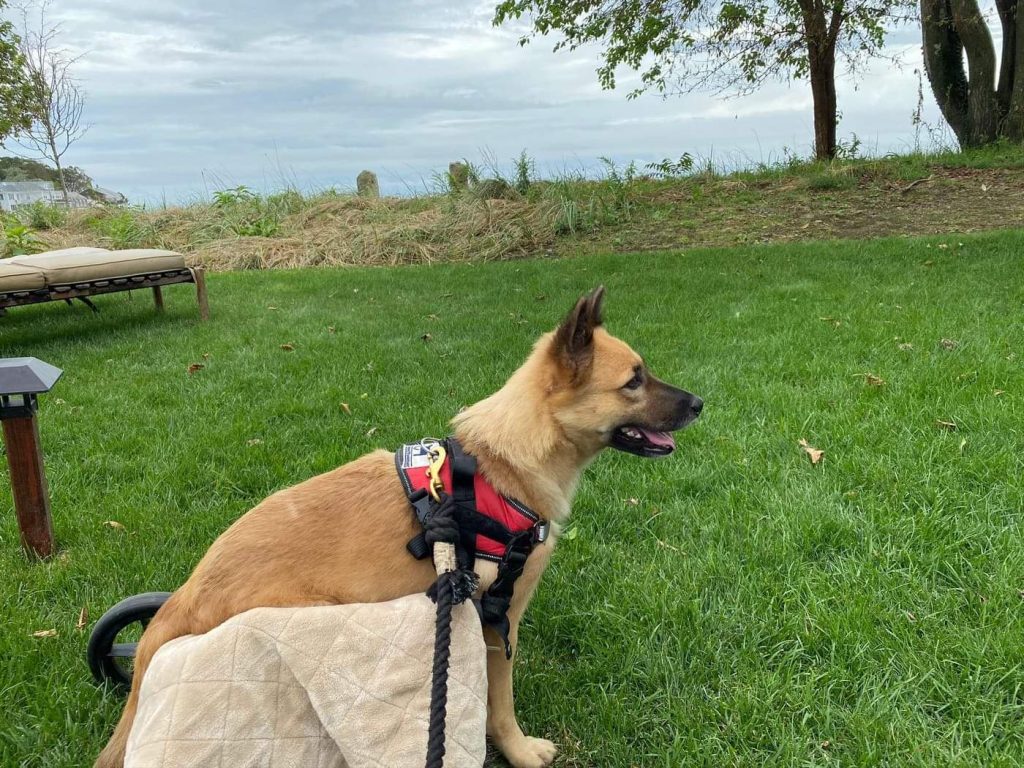WE HAVE AN APP!
For all the Paws International Clinic’s existing clients, there is the Digitail app! Digitail keeps all your pet’s data is in one place. Access it anytime, anywhere – it’s easy and free!


There is no quarantine for dogs to enter the U.S.A if the import steps are followed correctly. These regulations do NOT include the State of Hawaii or Guam. Unless otherwise stated, the regulations below apply to domestic dogs, cats and ferrets.
Effective immediately, dogs are not permitted import to the United States from Egypt without approval from the Center for Disease Control unless they have resided in a rabies-free country or a rabies-controlled country for a minimum of 6 months prior to import. Very few exceptions will apply. Any dogs entering the United States from Egypt will be returned to the origination country. The ban does not apply to dogs transiting Egypt that remain on the same airline as long as the dog does not clear customs and enter Egypt for any reason.
Effective July 14, 2021, the Center for Disease Control (CDC) suspended the import of dogs from the following high-rabies countries. The CDC has authority to issue a CDC Dog Import Permit of US citizens on an extremely limited basis. (CDC information and application below).
This includes dogs who have resided in, visited, or cleared customs and entered such a country within 6 months of import. Dogs intending to enter the US from these countries that do not meet the above criteria can either apply for an import permit or enter the United States at an airport that has approved quarantine facilities (MIA, LAX, JFK, ATL, IAD). If a valid rabies titer test is available, then quarantine will not be imposed on healthy dogs. If the titer test is invalid or no titer test is available, then a 28 day quarantine will be imposed.
The ban has been extended to January 31, 2023.
HIGH-RABIES COUNTRIES
AFRICA: Algeria, Angola, Benin, Botswana, Burkina Faso, Burundi, Cameroon, Central African Republic, Chad, Comoros, Côte D’Ivoire (Ivory Coast), Democratic Republic of the Congo, Djibouti, Egypt (Temporary importation suspension of dogs from Egypt until further notice), Equatorial Guinea, Eritrea, Eswatini (Swaziland), Ethiopia, Gabon, Gambia, Ghana, Guinea, Guinea-Bissau, Kenya, Lesotho, Liberia, Libya, Madagascar, Malawi, Mali, Mauritania, Morocco, Mozambique, Namibia, Niger, Nigeria, Republic of the Congo, Rwanda, Sao Tome and Principe, Senegal, Sierra Leone, Somalia, South Africa, South Sudan, Sudan, Tanzania (including Zanzibar), Togo, Tunisia, Uganda, Western Sahara, Zambia and Zimbabwe
AMERICAS AND EASTERN CARIBBEAN: Belize, Bolivia, Brazil, Colombia, Cuba, Dominican Republic, Ecuador, El Salvador, Guatemala, Guyana, Haiti, Honduras, Nicaragua, Peru, Suriname and Venezuela.
ASIA: Afghanistan, Armenia, Azerbaijan, Bangladesh, Belarus, Bhutan, Brunei, Cambodia, China (excluding Hong Kong and Taiwan), Georgia, India, Indonesia, Iran, Iraq, Jordan, Kazakhstan, Kuwait, Kyrgyzstan, Laos, Lebanon, Malaysia, Moldova, Mongolia, Myanmar (Burma), Nepal, North Korea, Oman, Pakistan, Philippines, Qatar, Russia, Saudi Arabia, Sri Lanka, Syria, Tajikistan, Thailand, Timor-Leste (East Timor), Turkey, Turkmenistan, Ukraine, United Arab Emirates, Uzbekistan, Vietnam and Yemen.
Before entering the USA your pet must have:
Your pet must be microchipped before, or at the same time as their rabies vaccination. If you do not, they will need to be vaccinated again.
Needed for pets traveling to the US, Europe, UK, Japan, Korea, Australia, China, Hong Kong, Taiwan, Singapore, Malaysia, Hawaii, New Zealand. A blood sample is taken from your pet and sent to a Certified Lab in the United Kingdom. We receive the results 6-8 weeks after.
Veterinary Health Certificate
A licensed veterinarian must complete the Health Certificate for your pet within 5 days of travel.
Screwworm Certificate
A licensed veterinarian must complete the Screwworm Certificate for your pet within 5 days of travel.
Government International Health Certificate
Must be completed 7 days prior to departure. Paws International Clinic will complete this step for you. Please bring the following to your appointment:
We highly recommend that you start to acclimate your pet to their travel crate and practice crate training. This will make their travel experience less stressful. During your travel consultation, we will measure, weigh and calculate what size crate is best for your dog or cat. The carrier must be IATA approved.
Sizing Your Pet Crate
This is a crucial step in ensuring your pet’s safety and comfort and can make the difference between being accepted or refused by your airline. Measure your pet according to the chart below for domestic flights. See below for international requirements. Compare your findings with the interior measurements of the crate.

A= length of animal from nose to root of tail
B = height from ground to elbow joint
C = width across widest part of pet (usually the shoulders)
D = height of animal in standing position (top of head for pets with non-erect ears – from tip of ears for pets with erect ears).
Please keep in mind that each airline has their own guidelines. Before booking your flight, please call the airline well in advance to see if the flight path allows pets.
There are three ways you can ship your pet:
Your pet can travel on the plane with you: Your pet must not exceed 5kg – 7kg (depending on the airline) or less with its soft carrier to fly with you in the cabin. Some airlines no longer offer this option.
You can check your pet as checked baggage: If your pet is over 7kg but weighing between 33kg – 45kg (depending on airline) they can also fly in the hold as checked baggage. Passengers should be aware that they may not be accepted by some countries due to certain regulations.
You can book your pet on a separate flight: In this case, you will be charged the Manifest cargo rate, which is considerably more than excess baggage. Some airlines no longer offer this option.
*As a rule, animals 33kg- 45kgs or larger (including the weight of the cage) will be charged as manifest cargo even if they travel on the same plane as you. It is important to check with the airline if your pet is close to that weight and to determine if its policy may vary from this general 45kg rule.
Government regulations change frequently – the information contained here is accurate to the best of our knowledge but be aware that it can change anytime and should be verified before travelling.



Panda travelling to the United States
Government regulations change frequently – the information contained here is accurate to the best of our knowledge but be aware that it can change anytime and should be verified before travelling.
Government regulations change frequently – the information contained here is accurate to the best of our knowledge but be aware that it can change anytime and should be verified before travelling.
Documents needed:
*Please note that a booked ticket is not needed to apply. The permit’s validity is for 14 days before the date you put on the application form and until 90 days after. (could be subject to change so please always check the website for updated information)
Alternatively, you may consult IPATA (International Pet and Animal Transportation Association) for options to board your dog and have it transported to the United States at a later date after you receive your permit if reservations aren’t available sooner.
Reasons Your CDC Dog Import Permit May Be DENIED:
1. Dog’s paperwork is not translated into English.
Make sure everything is translated, even date abbreviations.
2. Rabies vaccine certificate is expired or due to expire before travel date.
*If the vaccine is about to expire during the application process, before travel or just arriving in the U.S, it is recommended to Booster your dog before applying for the permit to avoid any further delays.
3. Missing information on the application form and/or dog’s paperwork
4. Wrong or conflicting information on the form and/or dog’s paperwork
5. Missing documents/attachments from the form.
6. Dog’s paperwork (certificates and forms) MUST be filled out electronically, not handwritten.
Our Pet Travel Logistics Specialist is dedicated to ensuring that your pet is moved abroad safely, comfortably, and that the whole process is stress free for you and your fur friend(s). We will handle every logistical aspect of your pet’s relocation domestically and internationally – from documentation, import and export regulations to transportation from door-to-door. We will handle every part of your pet’s journey!

Government regulations change frequently – the information contained here is accurate to the best of our knowledge but be aware that it can change anytime and should be verified before travelling.
Our fully-equipped clinic offers a full range of professional veterinary services.
You can schedule an appointment on Facebook by clicking the button below or through the chat widget.
WE HAVE AN APP!
For all the Paws International Clinic’s existing clients, there is the Digitail app! Digitail keeps all your pet’s data is in one place. Access it anytime, anywhere – it’s easy and free!
